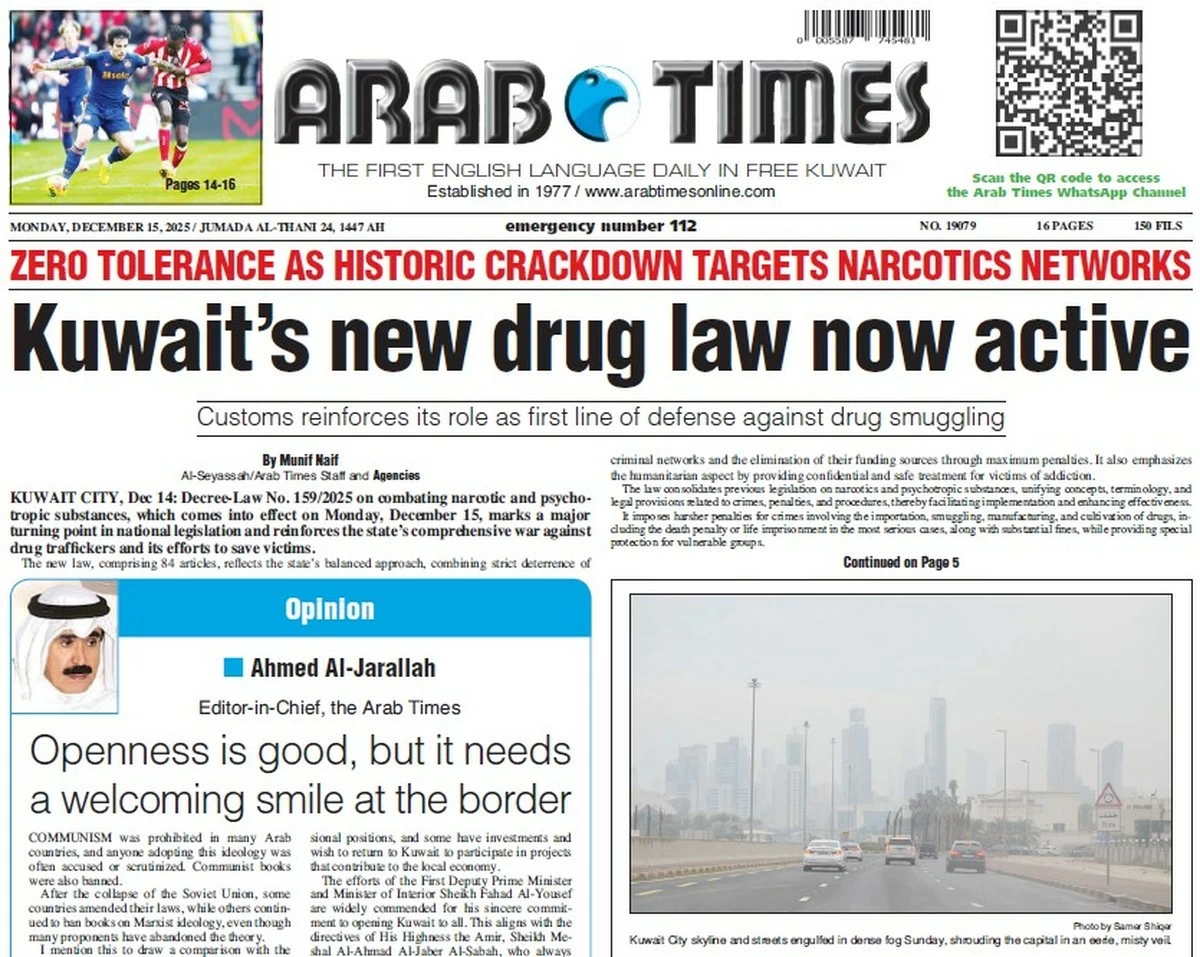10/12/2023
10/12/2023
KUWAIT CITY, Dec 10: A team of academic researchers from Kuwait University, in cooperation with Asia Research and Statistical Consulting Company, conducted a study on violence against women to measure the extent of the need for a shelter, counseling center, and a hotline for abused women in the country, reports Al-Anba daily. Dr. Lubna Al-Qadi, Dr. Maha Al-Sajari, Dr. Anwar Al-Khreinej, Dr. Ahmad Al-Sabr, Dr. Dalal Al-Baloul, and Dr Hamad Al-Aslawi participated in the study. The Daily obtained a copy of the study, in which around 10,000 women in Kuwait participated -- most of whom belong to the age group from 18 to 25 years or 47 percent of the total number of participants, followed by those aged 26 to 33 years old (17 percent) and then those whose ages range from 34 to 41 years (13 percent).
On the marital status of participants, the majority are single (53 percent), 50 percent are married and six percent are divorced. On their education, nearly two-thirds of the participants hold a bachelor’s degree (67 percent), while those holding a diploma accounted for 14 percent, and those with less than high school qualification accounted for 12 percent.
On their employment, almost half of the participants (49 percent) work in the government sector, and about one-third (30 percent) work in the private sector. The participants are from six different governorates, and their distribution according to governorate is almost the same.
Regarding the extent of violence against women in Kuwait, participants were asked whether they knew women currently subjected to violence and 2,772 participants or 35.5 percent responded in the affirmative. Asked if they are currently exposed to violence, eight percent of the total sample confirmed being exposed to violence and that they need urgent therapeutic intervention. When the total percentage of women currently exposed to violence (43.5 percent) was compared to the total population of women in Kuwait, it was found that the lives of 20 out of every 10,000 women were at risk.
Regarding the identity of the aggressors, the most prominent aggressors against women are first-degree relatives. On the forms of violence to which women are exposed, verbal violence ranked first at 6.9 percent, followed by psychological violence such as detention, deprivation, or blackmail at 4.8 percent, physical violence at 4.3 percent, and mental violence at 3.7 percent. The majority of the study sample expressed their support for the establishment of a hotline that operates 24 hours a day, 7 days a week, to report any emergency that might put their lives at risk. Around 98 percent of the participants confirmed their need for a day counseling center that provides the necessary guidance and treatment for all women who are victims of violence, whether for emergency cases or cases in which there is no threat to their lives; while 86 percent of the study participants affirmed the need for a shelter or housing for abused women that protects victims whose lives are threatened.
Dr Maha Al-Sajari indicated that the results of the exploratory study according to the social and demographic variables of the study sample in all governorates of Kuwait indicate a strong desire to establish shelters, a hotline, and centers for social and psychological counseling for abused women. She said there is a high demand in the Kuwaiti society, especially among the youth group, to establish shelters for abused women. The study also revealed that the father, husband, and mother mostly engage in violence toward women and that verbal violence is the most common type of violence among members of the study sample. Dr Lubna Al-Qadi explained that the results of this study are consistent with the World Health Organization statistics, stating that 30 percent of women in society suffer from violence and that the aggressor is a first-degree relative of the victim.
She stressed that society needs intensive awareness over long periods on how to build healthy family relationships that are based on understanding and respect and free of various forms of violence. Dr. Anwar Al-Khreinej said one of the most common factors pushing people to assault others, whether men or women, is the lack of awareness of the concept of violence in theoretical terms, and thus, a generation is created that sees such practices as a legitimate right and part of educational practices. Al-Khreinej emphasized the importance of awareness and healthy socialization based on respect for relationships, roles, differences, distances, and choices.


